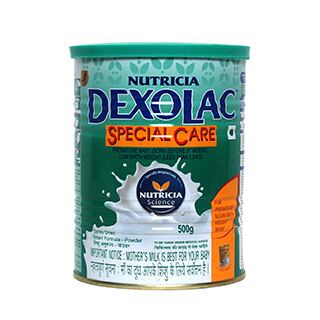Nutricia India documents obtained by DairyReporter.com detail cash payments of around 15,000 Indian Rupees ($240, €180) – three times the average monthly salary in India - by Nutricia sales representatives to doctors.
A source close to the company told DairyReporter.com that Nutricia India’s finance department approved “direct and indirect” payments to doctors by sales representatives from Nutricia India’s baby nutrition division.
Executives at Danone Group HQ in Paris, including CEO Franck Riboud and CFO Pierre Andre Terisse, were made aware for the first time in July 2013 that illegal payments were allegedly being made by Nutricia India employees.
In a statement, Danone declined to comment on the allegations, but said that the company has a “clear and well-established set of business conduct policies.”
“Worth 10,000 Rupees per month”

In July 2012, Indian firm Wockhardt completed the sale of its nutrition business to the Danone Group for €250m ($182m). Through the deal, Nutricia India acquired Wockhardt’s Dexolac, Nusobee, and Protinex brands - marking its entry into the Indian baby nutrition market.
It became apparent during the handover period, in the second half of 2012, that payments - in gift and cash form - were being made to doctors, our source said.
One internal Nutricia “activity proposal”, dated November 2012, appears to detail the purchase of iron chairs to fill the waiting room of a “doctor worth 10,000 Rupees per month” in prescriptions.
Flights were bought for another doctor’s partner, induction cookers were commonly given as gifts, and “stacks” of demand drafts were distributed to doctors during religious festival Diwali, our source added.
These practices, according to our source, were seen by employees as “just the way that business is done in India.”
Punishable by jail
The Indian Infant Milk Substitutes, Feeding Bottles and Infant Foods Act 1992 (IMS Act) expressly forbids the payment of health officials by those involved in the supply of infant formula.
“No person who produces supplies, distributes or sells infant milk substitutes…. shall offer to give, directly or indirectly, any financial inducements or gifts to a health worker or to any member of his family for the purpose of promoting the use of such substitutes,” the IMS Act reads.
It also states that “every person who, at the time the offence was committed, was in charge of, and was responsible to, the company, as well as the company shall be deemed to be guilty of the offence.”
Violating the IMS Act is punishable by up to three years in prison and/or a fine of up to 5,000 Indian Rupees.
DairyReporter.com understands that the Indian authorities are not aware of the aforementioned allegations.
Business conduct policies
Responding, the Danone Group declined to comment directly on the allegations.
“Danone has a clear and well-established set of business conduct policies,” Danone told DairyReporter.com. “All our employees are expected to comply with these policies, as well as local laws, without exception, in all countries where we do business.”
“Our Indian medical and early life nutrition businesses were acquired in mid-2012 from a reputable Indian company, Wockhardt Group. Since the acquisition, we have taken steps to align the organisation with our internal policies, and conducted audits to verify compliance, as part of the normal integration of these businesses into our global portfolio.”
“We have no further comment at this time,” the company added.
Homepage Picture: Stockmonkeys.com/Flickr
